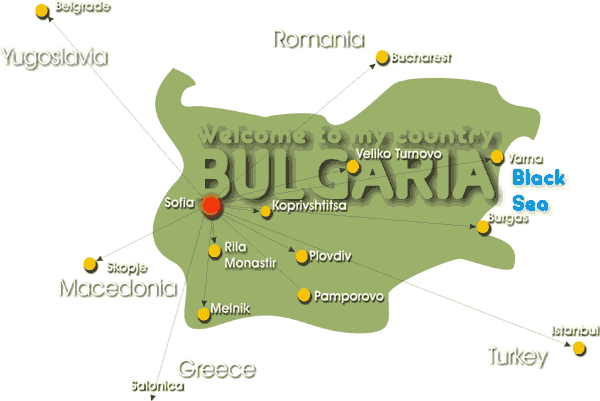Bulgaria's tourism to slump after years of rapid growth
 Sofia - Bulgarian hoteliers had become used to good earnings over the years of strong growth, but are facing grim prospects now as the economic crisis has forced worldwide belt-tightening.
Sofia - Bulgarian hoteliers had become used to good earnings over the years of strong growth, but are facing grim prospects now as the economic crisis has forced worldwide belt-tightening.
Pressed by a dwindling number of visitors and stiff competition from its equally hard-pressed southern neighbour Turkey, Bulgaria finds its Black Sea hotels cutting prices virtually on a daily basis.
The price of a night's stay followed by breakfast in a seaside hotel plummeted to as low as less than 30 dollars just as the height of the season arrived in the second half of July.
While its low-cost accommodation was a spur for Bulgarian tourism's often double-digit growth rates, pickier (and wealthier) customers were also drawn by offers of golfing, archaeological tours and the latest fad, the wellness programme.
Last year 500,000 Germans for example vacationed in Bulgaria, which was a new EU nation and an emerging tourist destination that offered everything from the cheapest to the most luxurious packages.
In 2008, Bulgaria raked in a record 3.4 billion dollars - roughly a 10-per-cent chunk of its gross domestic product - from its record 8.7 million foreign tourists.
This year advertising campaigns are again calling guests to the "Balkans' wellness capital" of Velingrad, nestled in the Rhodope Mountains in southern Bulgaria or to the party-mile of the Golden Sands beach north of Varna on the Black Sea.
And in June, the crowds further to the south on the 8-kilometre "Sunny Beach" resort gave the impression that all was well in the sector.
But the fact was, two out of every 10 hotels on Bulgaria's Black Sea coast never opened this summer, with latest estimates predicting that up to 60 per cent of the 1 million beds in seaside resorts may remain empty.
The overall number of paying guests declined by 7.4 per cent by the start of July, the state tourist organization DAT said. Some resorts, such as the Rusalka in the north, recorded a 25-per-cent drop in comparison to 2008.
Bookings from Germany fell by 11 per cent, said the mayor of Varna, Kiril Jordanov. And there will be 35 per cent fewer Britons this summer, as well, according to Anelya Krushkova, head of the DAT.
Facing these glum figures, Bulgarian hoteliers have turned to guests from home and other former Communist nations from central and eastern Europe.
Though officials still say they are hoping for a good summer, it is already clear that that records from 2008 will continue to stand after 2009. (dpa)